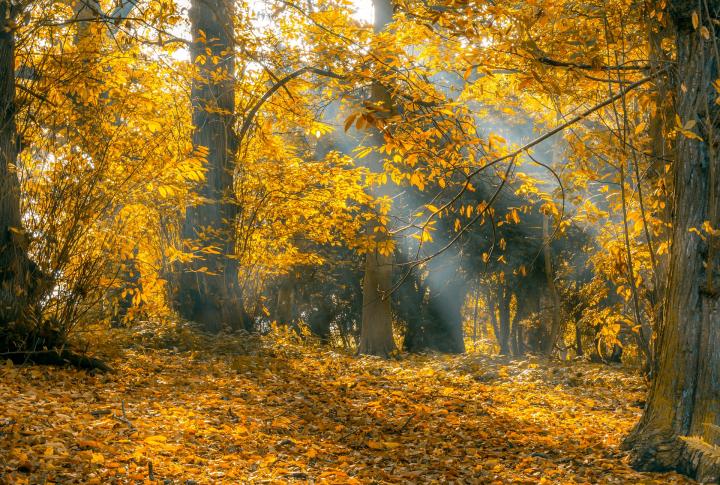Indian Summer,unseasonably warm weather in Fall

What Is an Indian Summer?
You may hear the term used to refer to any period of unseasonably warm weather in autumn, but traditionally, “Indian summer” referred to something more specific. Here are the criteria for a true Indian summer:
- As well as being warm, the atmosphere during Indian summer is hazy or smoky, there is no wind, the barometer is standing high, and the nights are clear and chilly.
- A moving, cool, shallow polar air mass is converting into a deep, warm, stagnant anticyclone (high pressure) system, which has the effect of causing the haze and large swing in temperature between day and night.
- The time of occurrence is important: The warm days must follow a spell of cold weather or a good hard frost, but also be before first snowfall.
- The conditions described above also must occur between St. Martin’s Day (November 11) and November 20. For over 200 years, The Old Farmer’s Almanac has adhered to the saying, “If All Saints’ (November 1) brings out winter, St. Martin’s brings out Indian summer.”
We rather enjoy this description written by Sandy Griswold for the Omaha Sunday World-Herald in November 1922:
“I am enabled to say, however, that the characteristics of the season, when it appears in all its glory, are a mild and genial temperature, gentle southwestern breezes, unusual brightness of the sun, extreme brilliancy of the moon, a clear, blue sky; sometimes half hidden by a veil of gray haze; daybreaks redder than the splotch on the blackbird’s wing, and sunsets laden with golden fleeces, the wooded valleys aglow with the fires of richly tinted leaves, still clinging to the listless limbs, or lying where they have fallen….”

Why Is it Called an “Indian Summer”?
In parts of Europe, a similar phenomenon is known as an “Old Wives’ Summer” or “St. Martin’s Summer,” but how did the term “Indian summer” come to be? There are many theories, but none is confirmed.
Some say the term comes from the Algonquian people located in what is now the northeastern United States, who believed that the condition was caused by a warm wind sent from the court of their southwestern god, Cautantowwit (“great spirit”).
Similarly, another origin states that Native Americans would routinely use this brief period of warm fall weather to gather a final round of supplies before winter’s hold set in. November is the time to get one’s last harvest in before winter truly shows its head, so a short period of warm weather would be of note around this time.
Yet another claim involves European settlers in New England. Each year, they would welcome the arrival of cold, wintry weather in late October when they could leave their stockades unarmed. But then came a time when it would suddenly turn warm again, and the Native Americans would decide to have one more go at the settlers. “Indian summer,” the settlers called it.
Watch a video from Almanac Editor-in-Chief Judson Hale about the origin of Indian Summer.
At this moment, we are experiencing a few days of Indian Summer Time, usually ends around Halloween.
